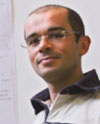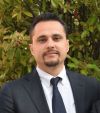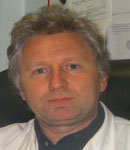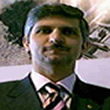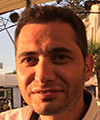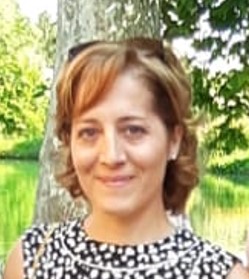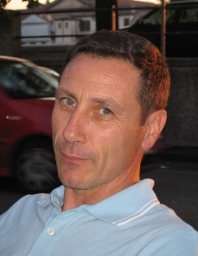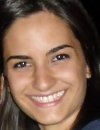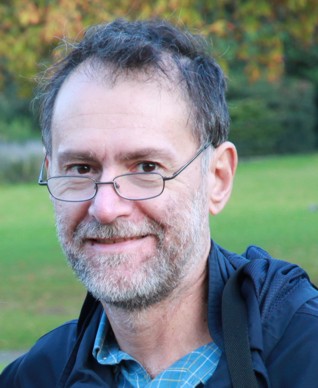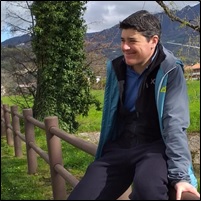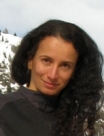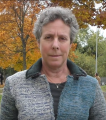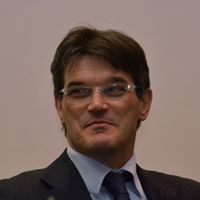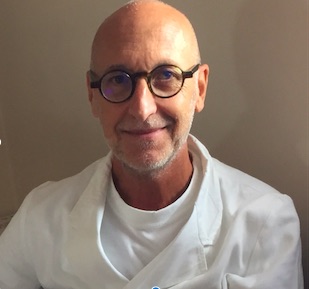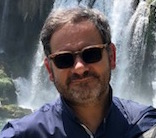Studying at the University of Verona
Here you can find information on the organisational aspects of the Programme, lecture timetables, learning activities and useful contact details for your time at the University, from enrolment to graduation.
Academic calendar
The academic calendar shows the deadlines and scheduled events that are relevant to students, teaching and technical-administrative staff of the University. Public holidays and University closures are also indicated. The academic year normally begins on 1 October each year and ends on 30 September of the following year.
Course calendar
The Academic Calendar sets out the degree programme lecture and exam timetables, as well as the relevant university closure dates..
| Period | From | To |
|---|---|---|
| MOTORIE 1° semestre | Oct 1, 2019 | Jan 24, 2020 |
| MOTORIE 2° semestre | Mar 2, 2020 | May 31, 2020 |
| Session | From | To |
|---|---|---|
| Sessione invernale | Jan 27, 2020 | Feb 28, 2020 |
| Sessione straordinaria | Jan 28, 2020 | Feb 28, 2021 |
| Sessione estiva | Jun 3, 2020 | Jul 5, 2020 |
| Sessione autunnale | Aug 26, 2020 | Sep 30, 2020 |
| Session | From | To |
|---|---|---|
| Sessione Invernale 19/20 | Mar 16, 2020 | Apr 3, 2020 |
| Sessione Estiva 19/20 | Jul 6, 2020 | Jul 28, 2020 |
| Sessione Autunnale 19/20 | Oct 12, 2020 | Nov 3, 2020 |
| Sessione straordinaria 19/20 | Mar 16, 2021 | Apr 9, 2021 |
| Period | From | To |
|---|---|---|
| Festa di Ognissanti | Nov 1, 2019 | Nov 1, 2019 |
| Festa dell'Immacolata | Dec 8, 2019 | Dec 8, 2019 |
| Vacanze di Natale | Dec 23, 2019 | Jan 6, 2020 |
| Vacanze di Pasqua | Apr 10, 2020 | Apr 14, 2020 |
| Festa della Liberazione | Apr 25, 2020 | Apr 25, 2020 |
| Festa del lavoro | May 1, 2020 | May 1, 2020 |
| Festa del Santo Patrono | May 21, 2020 | May 21, 2020 |
| Festa della Repubblica | Jun 2, 2020 | Jun 2, 2020 |
Exam calendar
Exam dates and rounds are managed by the relevant Exercise Science Teaching and Student Services Unit.
To view all the exam sessions available, please use the Exam dashboard on ESSE3.
If you forgot your login details or have problems logging in, please contact the relevant IT HelpDesk, or check the login details recovery web page.
Should you have any doubts or questions, please check the Enrollment FAQs
Academic staff
 elena.antelmi@univr.it
elena.antelmi@univr.it
 paola.cesari@univr.it
paola.cesari@univr.it
 tomas.chiaramonte@univr.it
tomas.chiaramonte@univr.it
 paolo.dellaquila@univr.it
paolo.dellaquila@univr.it
 anna.pedrinolla@univr.it
anna.pedrinolla@univr.it
 nicola.rovetti@univr.it
nicola.rovetti@univr.it
Study Plan
The Study Plan includes all modules, teaching and learning activities that each student will need to undertake during their time at the University.
Please select your Study Plan based on your enrollment year.
1° Year
| Modules | Credits | TAF | SSD |
|---|
2° Year activated in the A.Y. 2020/2021
| Modules | Credits | TAF | SSD |
|---|
| Modules | Credits | TAF | SSD |
|---|
| Modules | Credits | TAF | SSD |
|---|
| Modules | Credits | TAF | SSD |
|---|
1 module among the followingLegend | Type of training activity (TTA)
TAF (Type of Educational Activity) All courses and activities are classified into different types of educational activities, indicated by a letter.
Sociology and communication in sport activities (2020/2021)
Teaching code
4S000548
Teacher
Coordinator
Credits
6
Language
Italian
Scientific Disciplinary Sector (SSD)
SPS/08 - SOCIOLOGY OF CULTURE AND COMMUNICATION
Period
2° semestre motorie dal Mar 1, 2021 al May 31, 2021.
Learning outcomes
The course aims at introducing to the critical knowledge of: 1. the main theories of the sociology of communication; 2. the historical trends of mega-events in the context of globalization; 3. the theories of sociology of sport and the process of “sportivization”. At the end of the course the students will be able to know: 1. the main theories and the methods of social research on sport events; 2. the tecniques of social research for the analysis of tv sport audience; 3. the conceptual repertoire and a specific lexicon to appropriately describe the empirical relations among sport, media and sponsor.
Program
In the first part, the course will be dedicated to the analysis of the concept of communication, with reference both to the main theories and to the changes introduced by the transition from mass media to personal media.
It will go on to discuss the characteristics of sport mega-events in the context of globalisation, with particular reference to football and athletics.
In the last part I will analyse the concept of play and sport and the trend towards sportivization.
The programme has been divided depending on course attendance:
Programme for attenders:
- Paccagnella P., (2010). Sociologia della comunicazione. Bologna: Il Mulino.
- Lo Verde F. M. (2014), Sociologia dello sport e del tempo libero. Il Mulino: Bologna (Only Introduction, chap. 4, chap.5).
- Dell’Aquila P. (2020), La narrazione sportiva. QuiEdit: Verona II Edition (Only Introduction, chap.1, chap.2, chap. 4).
Programme for non attenders
- Paccagnella P., (2010). Sociologia della comunicazione. Bologna: Il Mulino
- Lo Verde F. M. (2014), Sociologia dello sport e del tempo libero. Il Mulino: Bologna (Only Introduction, chap. 4, chap.5).
- Porro N. (2013), Movimenti collettivi e culture sociali dello sport europeo. Bonanno: Acireale.
- Dell’Aquila P. (2020), La narrazione sportiva. QuiEdit: Verona II Edition (Only Introduction, chap.1, chap.2, chap. 4).
Examination Methods
During the final exam (taken face-to-face, if possibile) students will answer to four open questions about the programs presented during the course. The attender students will have to pass a preliminary examination.
The evaluation criteria will be: the comprehension of the main theories, the mastery of the disciplinary lexicon and the description of the interrelations among different topics.
Bibliografia ulteriore:
Martelli S., Porro N. (2018), Manuale di Sociologia dello sport. FrancoAngeli: Milano.
Mazza B. (2018), Fair Game. Stili e linguaggi della comunicazione sportiva. Lulu.com: Raleigh.
Ferrigni N. (2014), Il ciclismo fra percezione e comunicazione. Eurilink: Roma.
Germano I. (2012), La società sportiva: significati e pratiche della sociologia dello sport. Rubbettino: Soveria Mannelli.
Balducci S. (2007), L’industria della comunicazione sportiva. FrancoAngeli: Milano.
Porro N. (2006), L’attore sportivo. La Meridiana: Molfetta.
Elias N., Dunning E. (2001), Sport e aggressività, Il Mulino: Bologna.
Porro N. (2001), Lineamenti di sociologia dello sport. Carocci: Roma.
Type D and Type F activities
| years | Modules | TAF | Teacher | |
|---|---|---|---|---|
| 1° | Anthropometry | D |
Carlo Zancanaro
(Coordinator)
|
|
| 1° | Physiology of sport nutrition | D |
Silvia Pogliaghi
(Coordinator)
|
|
| 1° | Biochemistry for sport | D |
Massimo Donadelli
(Coordinator)
|
|
| 1° | Methodology of sport activities measures | D |
Luca Paolo Ardigo'
(Coordinator)
|
|
| 2° | Adapted motor learning | D |
Mirta Fiorio
(Coordinator)
|
|
| 2° | Physical bases of exercise prescription | D |
Silvia Pogliaghi
(Coordinator)
|
|
| 2° | Advanced nutrition for sports | D |
Silvia Pogliaghi
(Coordinator)
|
|
| 2° | Sport physiology | D |
Silvia Pogliaghi
(Coordinator)
|
|
| years | Modules | TAF | Teacher | |
|---|---|---|---|---|
| 1° | Sports and drugs | D |
Roberto Leone
(Coordinator)
|
|
| 1° | Forensic medicine and social security | D |
Aldo Eliano Polettini
(Coordinator)
|
|
| 1° | Research methodology applied to sport | D | Not yet assigned | |
| 1° | Statistics applied to movement sciences | D |
Maria Elisabetta Zanolin
(Coordinator)
|
|
| 2° | Neuromotor rehabilitation | D |
Nicola Smania
(Coordinator)
|
|
| 2° | Theory and pedagogy of nordic walking | D |
Barbara Pellegrini
(Coordinator)
|
|
| 1° 2° | Neurological diseases and movement disorders | D |
Michele Tinazzi
(Coordinator)
|
|
Career prospects
Module/Programme news
News for students
There you will find information, resources and services useful during your time at the University (Student’s exam record, your study plan on ESSE3, Distance Learning courses, university email account, office forms, administrative procedures, etc.). You can log into MyUnivr with your GIA login details: only in this way will you be able to receive notification of all the notices from your teachers and your secretariat via email and soon also via the Univr app.
Graduation
List of theses and work experience proposals
Student mentoring
Gestione carriere
Orario lezioni
L’orario delle lezioni comprende
Lezioni Frontali in aula
Esercitazioni e laboratori
Questi ultimi sono organizzati per gruppi dai singoli docenti responsabili dei corsi.
L'orario è pubblicato nel portale studenti
Modalità di frequenza
Vige l'obbligo di frequenza al 70% come specificato nel Regolamento di ogni singolo corso di laurea e laurea magistrale:
Ulteriori informazioni:
L'accesso alle pagine Moodle dei singoli insegnamenti è vincolato alla compilazione del piano di studi.
App Univr Lezioni, FAQ e guida all'utilizzo sono disponibili al seguente link: orario-lezioni-e-modalita-di-frequenza
Comunicati: Avvisi per studenti
Internships
Internships are aimed at enabling students to gain direct knowledge of the world of work and to acquire specific professional skills.
Internships are carried out under the responsibility of an individual lecturer, and can be carried out in professional firms, public administration bodies and companies recognised by the University of Verona.
Any CFU credits gained by doing internships will be recognised and recorded by the University in accordance with the relevant University regulations in force (Regolamento d’Ateneo per il riconoscimento dei crediti maturati negli stage universitari).
For further information on internships, please go to: https://www.univr.it/it/i-nostri-servizi/stage-e-tirocini.
Linguistic training CLA
Certificazione medica di idoneità
Riferimenti normativi principali: DM 24 aprile 2013 art. 3, GU 169 del 20-07-2013; Decreto del Ministro della Salute dell’8 agosto 2014 e s.m.i.
Per frequentare le attività dei corsi di Laurea e Laurea magistrale di Scienze motorie è obbligatorio presentare la certificazione medica di idoneità fisica per attività sportiva non agonistica. La certificazione è necessaria per accedere alle attività pratiche-esercitative e al tirocinio.
à COME OTTENERE LA CERTIFICAZIONE
La certificazione - riportante l’indicazione che è stato eseguito l’ECG a riposo - può essere rilasciata da:
- centri o servizi di medicina dello sport delle ASL (ora ATS) e delle aziende ospedaliere
- istituti della Federazione Medico Sportiva Italiana
- centri pubblici o privati autorizzati:
- dai medici di medicina generale di libera scelta, relativamente ai propri assistiti;
- dal medico specialista in medicina dello sport.
L’ECG a riposo deve essere ripetuto annualmente.
E’ ammesso anche il certificato medico di idoneità alla pratica sportiva agonistica, per chi ne fosse già in possesso.
à SCADENZA PER LA PRESENTAZIONE
La certificazione medica deve essere prodotta al momento dell'immatricolazione e, comunque, entro l’inizio delle lezioni alla Segreteria Corsi di Studio Scienze motorie. Spetta agli studenti rinnovarla annualmente alla scadenza - per ogni anno di iscrizione in corso o fuori corso. La Segreteria effettuerà periodicamente dei controlli sulla consegna dei certificati.
NOTA: Studenti immatricolati a seguito di SUBENTRO/RIPESCAGGIO/TRASFERIMENTO IN INGRESSO: se non è possibile rispettare la scadenza di presentazione del certificato sopra indicata, avvisare la Segreteria Corsi di Studio Scienze, scrivendo all’indirizzo certmed.scienzemotorie@ateneo.univr.it
à MODALITA’ DI CONSEGNA
La certificazione va inviata alla Segreteria Corsi di Studio Scienze motorie dalla propria e-mail istituzionale nome.cognome@studenti.univr.it all’indirizzo certmed.scienzemotorie@ateneo.univr.it.
Student login and resources
Competenze linguistiche
DOPO LA LAUREA TRIENNALE
Per proseguire gli studi in uno dei corsi di Laurea Magistrale dell'ambito delle Scienze motorie è necessario possedere competenze linguistiche almeno di livello B1 informatizzato (o superiore) specificamente di lingua inglese, poichè i corsi di studio di livello superiore prevedono nel proprio piano didattico la presenza di insegnamenti o di moduli impartiti dai docenti direttamente in inglese.
Inoltre, tali competenze costituiscono requisito di accesso indispensabile per poter partecipare alla prova di ìngresso oppure per iscriversi ad una laurea magistrale.
La conoscenza di altre lingue diverse dall'Inglese NON può venire riconosciuta come "requisito" utile per l'accesso ai corsi di laurea magistrale. Tuttavia, la certificazione posseduta potrà essere valutata da un'apposita Commissione di docenti ed eventualmente riconosciuta in termini di crediti (CFU) a scelta dello studente, presentando domanda al momento dell'immatricolazione.
Si invita a leggere con attenzione i bandi di concorso annuali per l'ammissione ai corsi di laurea magistrali per maggiori informazioni - consultare nel sito del corso di studio anche la sezione "Iscriversi".
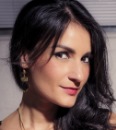

 +39 045 842 5117
+39 045 842 5117

